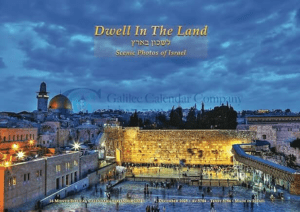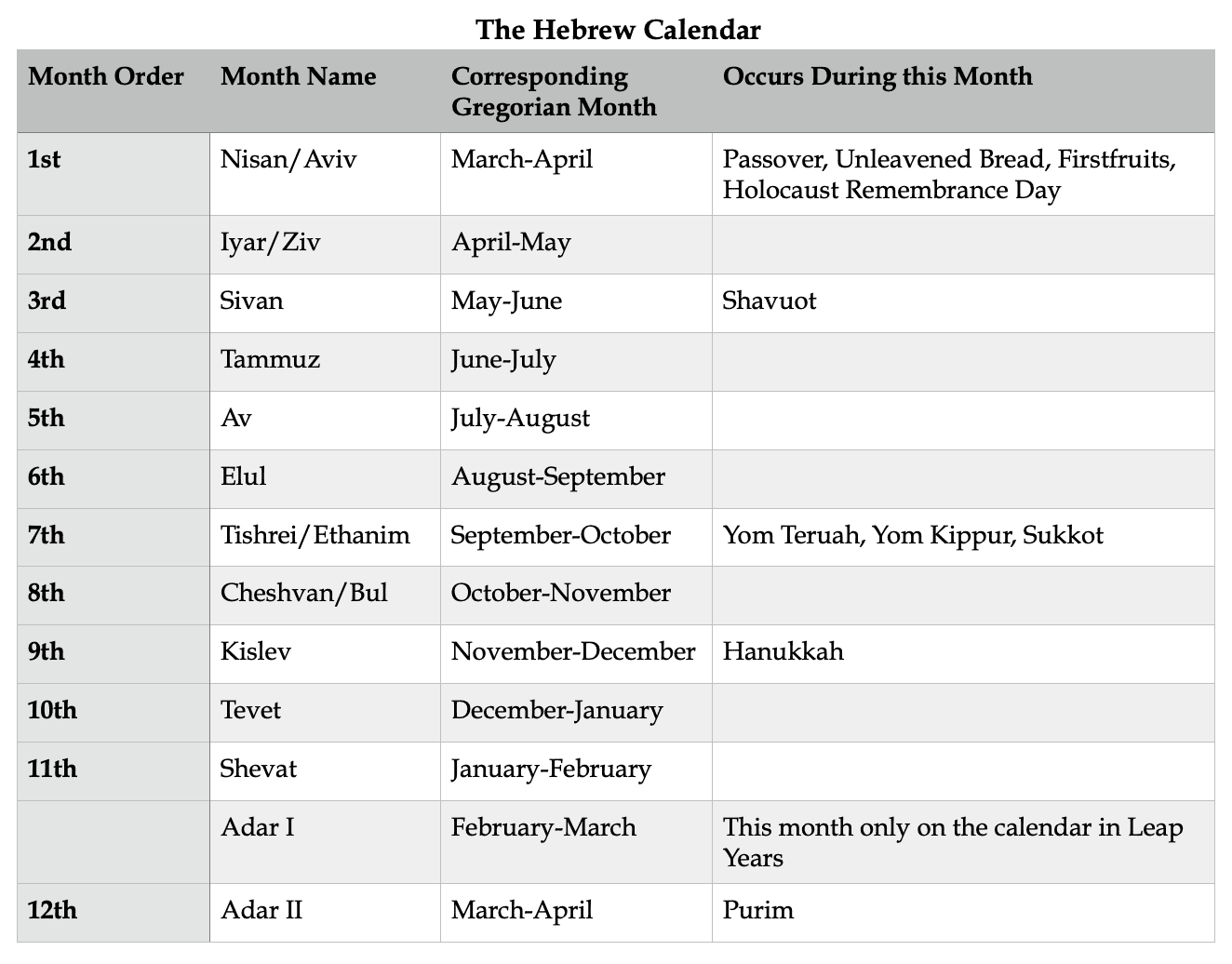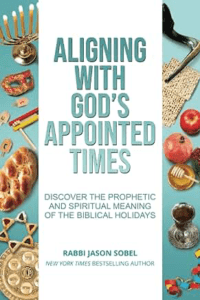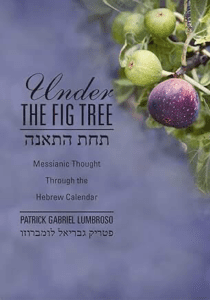
The Hebrew Calendar Explained
You’ll find that following the Hebrew calendar becomes necessary when you begin to observe the Biblical Holy Days and align your year according to the Bible. To guide you in this, I recommend you purchase a calendar with the corresponding Hebrew months and Biblical Holy Days. The one I use is from First Fruits of Zion. It includes the Holy Days, corresponding dates on the Hebrew calendar, and the Torah Readings for each week and holiday.
** Free printable Calendar of Important Dates from Hebrew Roots Mom! **

The significant differences between the Gregorian calendar we’re used to and the Hebrew/Biblical calendar are:
– Hebrew days start the evening before instead of at midnight.
– Hebrew months do not correspond to the months on the Gregorian calendar.
– The Hebrew calendar has a different Leap Year system, adding in a month 7 of the years out of a 19-year cycle instead of a day every four years, like the Gregorian leap year.
– The Hebrew calendar is lunar rather than solar.
– Months are 29 or 30 days instead of 28, 29, 30, or 31 like Gregorian months.

Biblical Events on the Hebrew Calendar
It’s interesting to study events in the Bible and where they occur on the Hebrew calendar. We can note when they occur, remember them, and even study them on the anniversary of their occurrence!
Here are some of the events from the Bible that we know the date of on the Hebrew calendar:
Nisan/Aviv (The First Month)
- God designated this the year’s first month (Ex. 12:2).
- Nisan 1: Building of the Tabernacle was completed, the 2nd Temple consecrated, and construction of the 3rd Temple will be completed (Ex. 40:2, 17; 2 Chr. 29:17, Eze. 45:18).
- Nisan 10: The Passover Lambs are chosen (Ex. 12:3).
- Nisan 11: When Jesus arrives in Jerusalem, his triumphal entry is when people greet him with palm branches and shout “Hosanna” (Mt. 21:10- 19).
- Nisan 12: The Last Supper and Jesus arrested (Mt. 26:17-68).
- Nisan 13: Jesus is crucified, and Passover begins (Mt. 26-27, Ex. 12:8).
- Nisan 14: Passover (Lev. 23:5, Ex. 12:6-13).
- Nisan 15-21: Feast of Unleavened Bread (Lev 23:6, Ex. 12:15-2).
- Nisan 15: The Hebrew people leave Egypt (Ex. 12:28-51).
- Nisan 16: Jesus rises from the dead (the evening before), First Fruits (approximate date) (Mt. 28:1, Lev 23:9-14).
- Nisan 17: Haman is hung (Est. 7).
Iyar/Ziv (The Second Month)
- Iyar 1: Construction of the 2nd Temple begins (Ezra 3:8).
- Iyar 2: Construction of the 1st Temple begins (1 Kgs. 6:1, 2 Chr. 3:1-2).
- Iyar 20: The Hebrew people leave Mt. Sinai (Num. 10:11-13).
- Iyar 27: Noah and his family exited the ark (Gen 8:14-19).
Sivan (The Third Month)
- Sivan 6-7: Shavuot, the Torah is given to the Hebrew people at Mount Sinai, and the Holy Spirit is given. (Lev. 23:15-22, Ex. 19:16-25, Acts 2).
- Sivan 23: Decree is made, saying the Jews are allowed to defend themselves (Est. 8:9-13).
Tammuz (The Fourth Month)
- Tammuz 5: Ezekiel received his vision (Eze. 1).
- Tammuz 9: Jerusalem captured by Nebuchadnezzar (Jer. 30:1-3, 2 Kgs. 25:1-7).
Av (The Fifth Month)
- Av 1: Death of Aaron (Num. 33:38).
- Av 9: First and second Temples destroyed (Jer. 52:6-11, Historical sources only for 2nd Temple. Not recorded in the Bible).
- Av 10: First Temple set on fire by Nebuchadnezzar (Jer. 52:12-13).
Elul (The Sixth Month)
- Elul 24: Rebuilding of 2nd Temple resumed (Hag. 1:14-15).
- Elul 25: Jerusalem’s walls rebuilt (Neh. 6:15).
Tishrei (The Seventh Month)
- Tishrei 1: Temple offerings resume, Yom Teruah (Ezra 3:6, Lev. 23:23-25, Num. 29:1-6).
- Tishrei 2: Sukkot is celebrated when priests, Levites, and heads of households gather to study the Torah (Neh. 8:13-18).
- Tishrei 8: The dedication ceremony for the 1st Temple starts, and the Ark is brought into the Temple (1 Kgs. 8:2-11).
- Tishrei 10: Yom Kippur (Lev. 23:26-32, Num. 29:7-11)
- Tishrei 15-22: Sukkot (Lev. 23:33-43, Num. 29:12-40, Deut. 16:13-17).
- Tishrei 21: Jesus said he is the living water (Jn. 7:37-39).
Cheshvan/Bul (The Eighth Month)
- This month, the first Temple building was finished (1 Kgs. 6:38).
- Cheshvan 15: King Jeroboam’s Feast was instituted (1 Kgs. 32-33).
Kislev (The Ninth Month)
- Kislev 4: Zechariah receives prophecy (Zech. 7).
- Kislev 20: Ezra calls Israel out for their sin (Ezra 10:9-12).
- Kislev 24: Haggai receives two prophecies (Hag. 2:10, 20).
- Kislev 25-Tevet 3: Hanukkah, Jesus in the Temple portico – “I and the Father are one” (John 10:22-42).

Tevet (The Tenth Month)
- Tevet 1: Esther crowned queen (Est. 2:16-17).
Shevat (The Eleventh Month)
- Shevat 1: Moses told the people God said He’d give them the Promised Land (Deut. 1:3-8).
- Shevat 24: Zechariah’s vision (Zech. 1:7).
Adar (The Twelfth Month)
- Adar 3: Building of the 2nd Temple completed (Ezra 6:15).
- Adar 14: Purim, Jews celebrate victory (Est. 9:17-18).
- Adar 25: Jehoiachin freed from prison (2 Kgs. 25:27-30).
Understanding the Hebrew calendar is vital to Belivers because it increases our understanding of the Bible and Biblical events.
Take the Temple, for example. Is it merely a coincidence that the construction of the first and second Temples happened within a day of one another, even though these events took place 485 years apart? How about when both Temples were destroyed on the same day, but the second was destroyed 656 years after the first?
Or, even more intriguing, that Jesus, who John referred to as the Lamb of God before his ministry even started, was crucified on Passover when the Passover lambs were killed (John 1:29, Mt. 26-27)? Or when the Apostles were celebrating God giving the Law on Shavuot, which happened over 1,000 years earlier, the Holy Spirit was given, and the Law was written on their hearts (Ex. 19:16-25, Acts 2)?
I don’t think any of this occurred randomly. It happened just as God knew it would. He also knew what was coming and what would happen in the future. Isn’t it amazing to look at the Hebrew calendar and see God’s faithfulness to His people throughout time?
The plan of the LORD stands forever,
Psalm 33:11
The plans of His heart from generation to generation.
** Free printable Calendar of Important Dates from Hebrew Roots Mom! **
Comments (5)
Leave a Reply Cancel reply
Search
Recent Comments
- Holy Branches on Explaining The Chosen: Season 2, Episode 1: Thunder
- robert silvernail on Explaining The Chosen: Season 2, Episode 1: Thunder
- Robin Meyer on Explaining The Chosen: Season 3, Episode 3: Physician Heal Yourself
- Joe on The Names of God: יהוה, the God of Israel
- Bradford on 9 Hebrew Words to Bring You Closer to God





BENDICIONES, MUY BUEN MATERIAL, PERO TE SALTASTE EL NACIMIENTO DE JESUS???????
The Bible doesn’t give us the date of Jesus’s birth.
Very Good Site Shalom
Great and highly informative article,thanks.